Canada joins ban on Boeing crash aircraft
- Published
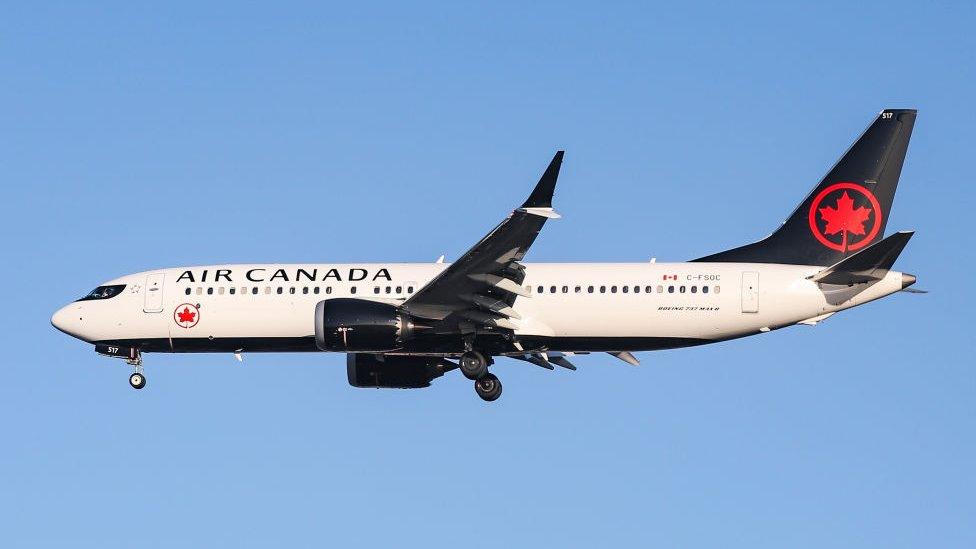
Canada has grounded the world's third largest fleet of Boeing 737 Max 8 aircraft, following the crash of an Ethiopian Airlines jet on Sunday.
The country's regulator said that three Canadian airlines, operating 41 Max 8 jets, would be unable to use them in Canada's airspace.
Canada joins a long list of countries to halt the aircraft's use. But the US regulator says it is safe to fly.
Canada's transport minister said it had received new evidence about the crash.
Marc Garneau said that satellite data showed possible similarities between flight patterns of Boeing 737 Max planes operating in Canada and the Ethiopian Airlines plane that crashed.
He said: "As a result of new data that we received this morning, and had the chance to analyze, and on the advice of my experts and as a precautionary measure, I issued a safety notice.
"This safety notice restricts commercial passenger flights from any operator of the Boeing 737 MAX 8 or MAX 9 variant aircraft, whether domestic or foreign, from arriving, departing or overflying Canadian air space.
"This safety notice is effective immediately and will remain in place until further notice."



The Polish Civil Aviation Authorities also announced on Wednesday that it had closed its aerospace to the Boeing 737 Max 8.
The UK, the European Union, China, Australia and India are among the countries that have suspended the Boeing 737 Max from their airspace.
However, the US Federal Aviation Administration said a review had showed "no systemic performance issues" and that there was no basis for grounding the aircraft.
On Wednesday, the chief executive of Ethiopian Airlines, Tewolde Gebremariam, told the BBC that all 737 Max aircraft worldwide should be grounded until the causes of the crash were known.
'Don't sink! Don't sink!'
Meanwhile, it has emerged that pilots in the US had complained about problems controlling the Boeing 737 Max 8 during take-off, echoing difficulties that contributed to the fatal Lion Air crash in Indonesia last October.
Documents reveal that pilots reported engaging autopilot only for the aircraft's nose to pitch lower, prompting the warning system to exclaim: "Don't sink! Don't sink!"
The Ethiopian Airlines plane crashed just six minutes into its flight.
Two US pilots reported separate incidents involving the 737 Max's automatic anti-stalling system in November.
The feature - new to the the 737 Max family, which began flying commercially in 2017 - is designed to keep the plane from stalling.
The system prevents the aircraft from pointing upwards at too high an angle, where it could lose its lift.
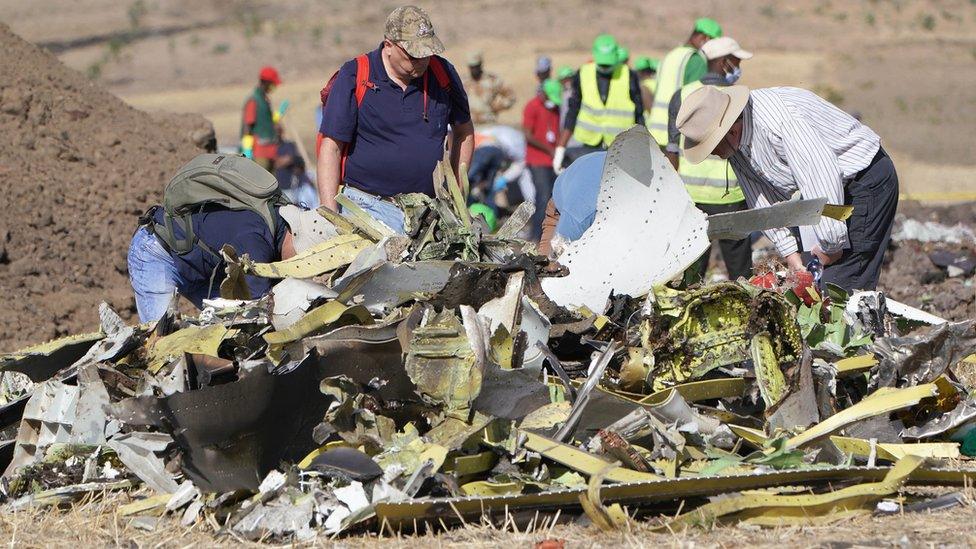
Investigators examine wreckage from the Ethiopian Airlines plane crash
However, according to filings with the US Aviation Safety Reporting System, which pilots use to disclose information anonymously, it appeared to force the nose down.
In both cases, pilots were forced to intervene to stop the plane from descending.
One first officer said that they had discussed what had happened at length with the captain
"I reviewed in my mind our automation setup and flight profile but can't think of any reason the aircraft would pitch nose down so aggressively," they said.
Investigators have recovered the flight data recorders from the Ethiopian Airlines plane crash but have yet to determine what caused the accident.

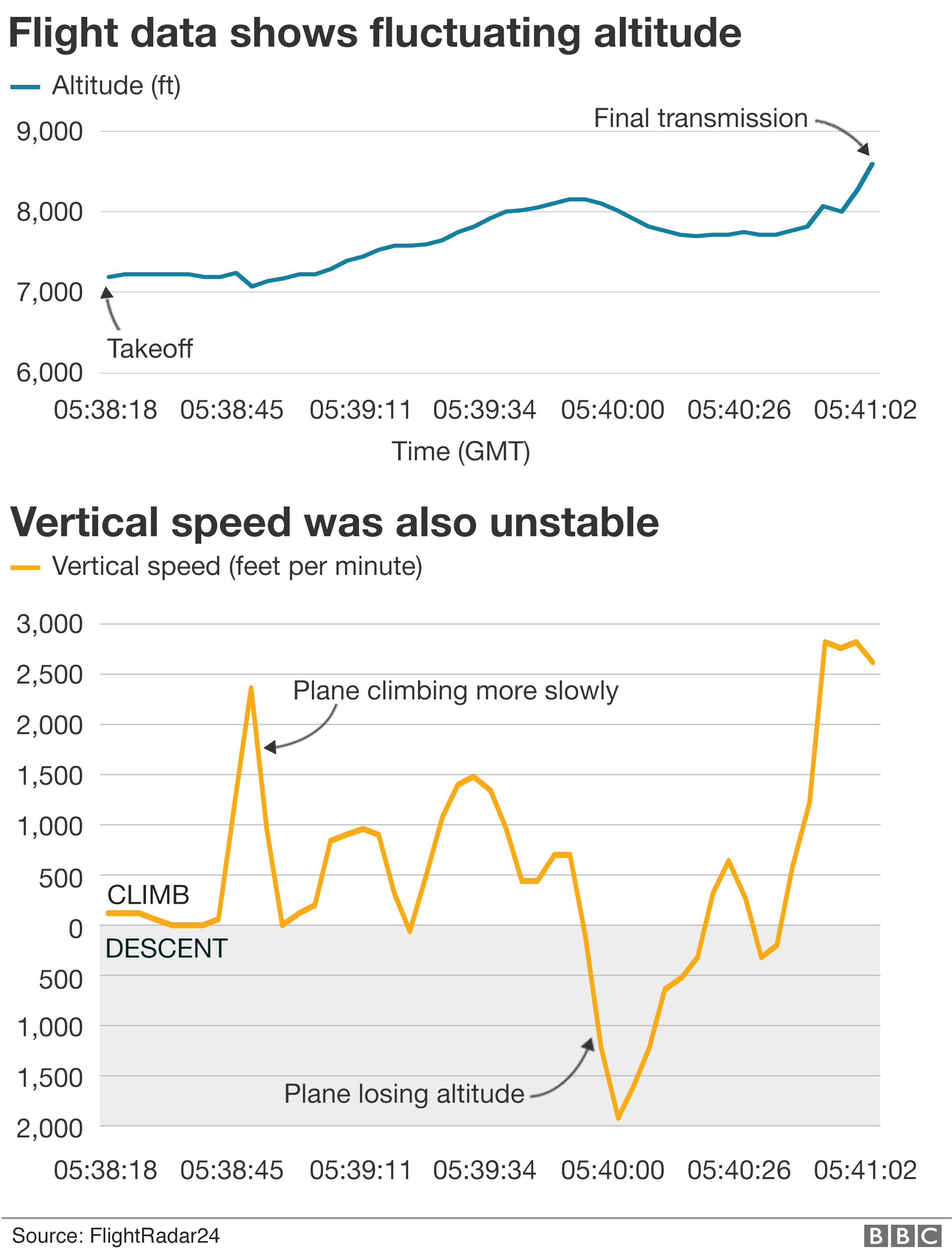

Flightradar24 reported that that the plane vertical speed was unstable after take off.
'Criminally insufficient'
After the Lion Air crash, Boeing issued guidance on what to do regarding erroneous readings from the sensor, which sends out information about what angle a plane is flying at.
But another pilot said that "it did nothing" to address the problems with the sensor.
They said: "I think it is unconscionable that a manufacturer, the FAA, and the airlines would have pilots flying an airplane without adequately training, or even providing available resources and sufficient documentation to understand the highly complex systems that differentiate this aircraft from prior models.
They added: "I am left to wonder: what else don't I know? The flight manual is inadequate and almost criminally insufficient."
- Published14 March 2019
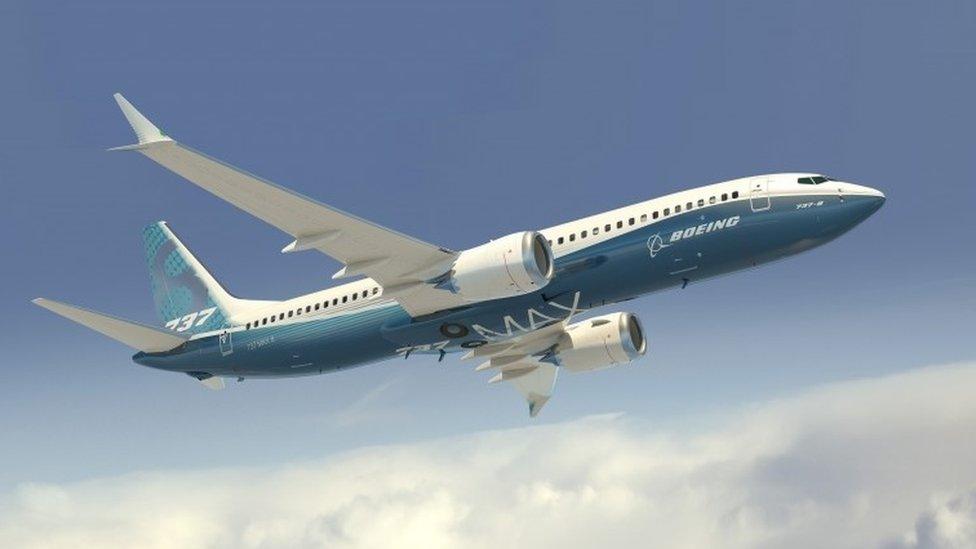
- Published13 March 2019
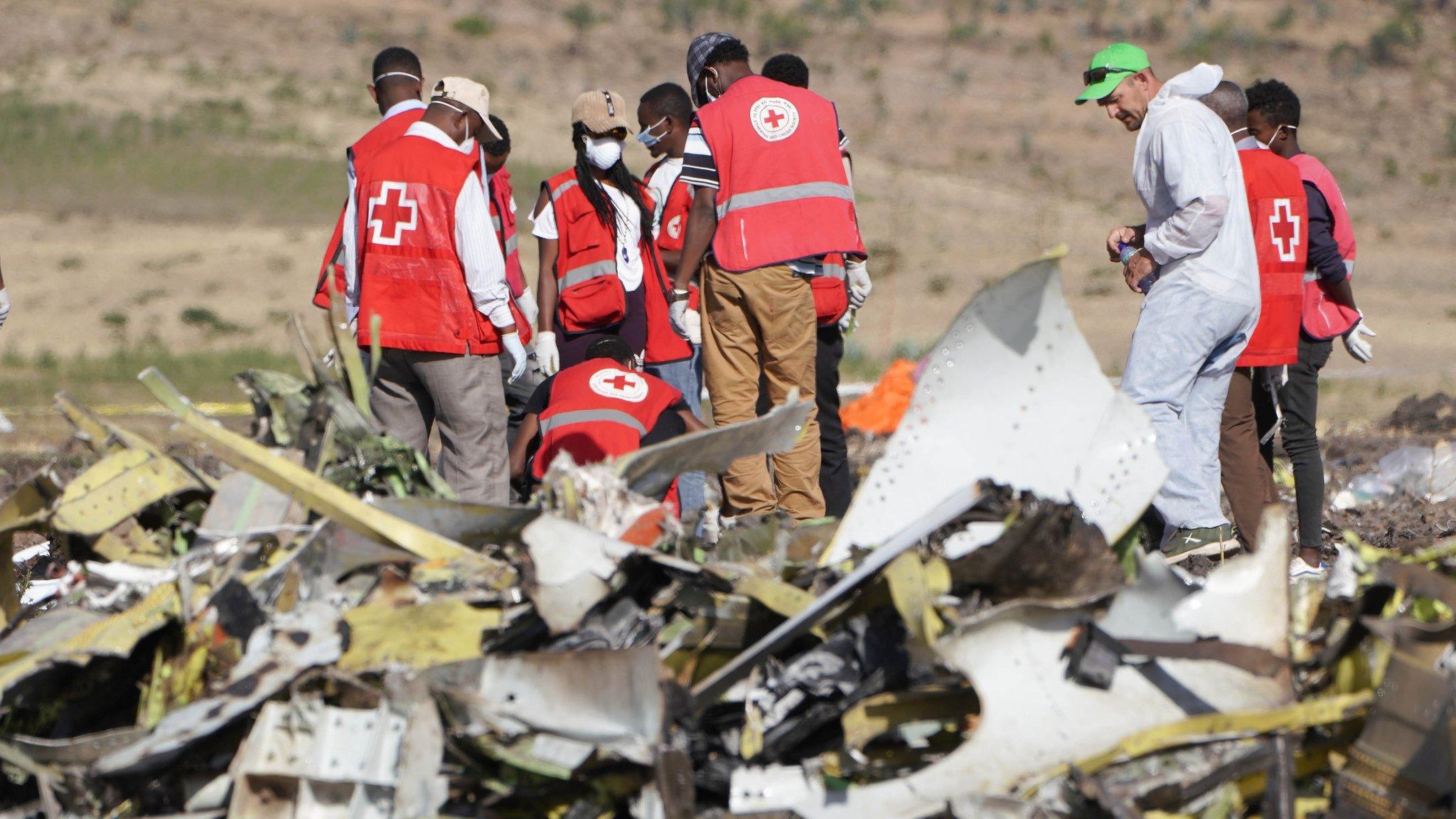
- Published11 March 2019
